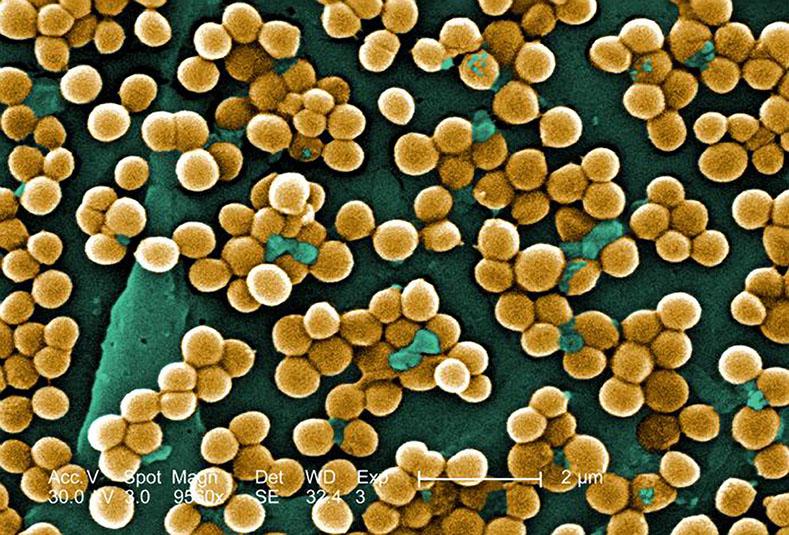Superbug surmounts antibiotics becoming a deadly global threat
Scientists are engineering “good bugs” to defeat deadly bacteria such as these clusters of the notorious MRSA (Methicillin-resistant Staphylococcus aureus) strain, here magnified 9,560 times. MRSA resists treatment by almost all stardard anti-biotics. (Janice Haney Carr/CDD/Tribune News Service)
May 27, 2016
The Center for Disease Control announced a new strain bacteria that cannot be treated has been found in the U.S. during a National Press Club in Washington. The first cast of the untreatable form of the superbug has been confirmed in Pennsylvania. A middle aged female presented an uncommon type of E. Coli which is resistant to antibiotics including Colistin a strong antibiotic given when all others fail. Even Colistin is over a hundred years old and has the capacity to seriously damage the kidney.
The superbug was found in the woman’s urine. A sample was given to the Walter Reed National Military Medical Center. The infection is found outside the U.S., however, the woman has not traveled outside the country within the past five months. There are no other information available and nobody knows the source of the infection.
Both the CDC and the Pennsylvania State Health are investigating the case and trying to figure out if the woman has spread the infection through contact with other people and within the facility she visited. One report suggested that around a half of the cases of this bacterial infection will result in death.
Antibiotic resistance is an increasing issue, and the World Health Organization has stated that it is a global threat. Meanwhile, scientists urge not to overuse drugs and to find new solutions quickly. In the U.S. two million people are infected with untreatable bacterial infections and nearly 25,000 patients die every year.
According to CDC director Tom Frieden, the presence of the resistant superbug reveals that there could be an end to antibiotics and that more patients could end up in the intensive care unit. There is also a possibility that there will not be cures for common bacterial infections. The least people can do is to maintain good hygiene and allot monetary funds towards research of antibiotics.









